 Petzlover
Petzlover American Polydactyl is originated from United States but Havana Brown is originated from United Kingdom. Both American Polydactyl and Havana Brown are of same weight. Both American Polydactyl and Havana Brown has almost same life span. Both American Polydactyl and Havana Brown has same litter size. Both American Polydactyl and Havana Brown requires Low Maintenance.
American Polydactyl is originated from United States but Havana Brown is originated from United Kingdom. Both American Polydactyl and Havana Brown are of same weight. Both American Polydactyl and Havana Brown has almost same life span. Both American Polydactyl and Havana Brown has same litter size. Both American Polydactyl and Havana Brown requires Low Maintenance.
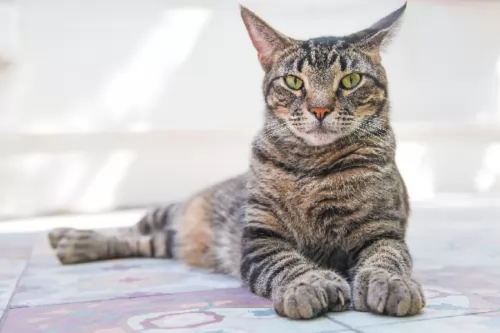 It is believed that this unusual cat came to the United States on ships – kept by sailors who thought of them as a good luck charm and to keep the mice population under control.
It is believed that this unusual cat came to the United States on ships – kept by sailors who thought of them as a good luck charm and to keep the mice population under control.
These unusual cats became popular in the 1800s as ship cats but the cats soon began to be seen in port cities on the Eastern coast of the United States as well as Canada, and their numbers began to increase.
It is also believed these interesting cats were brought specifically to the Boston area.
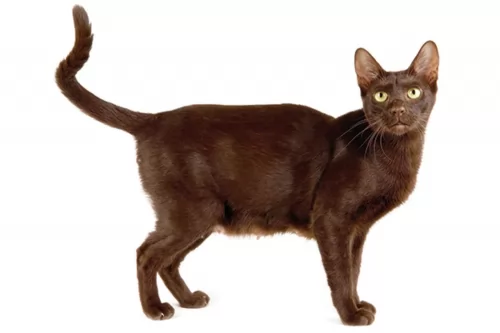 The rare Havana Brown cat seems to be a result of a planned breeding between Siamese and domestic black cats.
The rare Havana Brown cat seems to be a result of a planned breeding between Siamese and domestic black cats.
It was in the 1950s that cat fanciers in the UK became the early breeders. These breeders called themselves the Havana Group. They created the foundation of the modern-day Havana Brown cat.
These breeders managed to produce chocolate shaded kittens which became known as the Chestnut Brown Oriental. Kittens arrived in the US and were crossbred with the Chocolate and Seal Point Siamese to produce chocolate-colored kittens.
In 1964, the Havana Brown was accepted for Championship status by the Cat Fanciers Association.
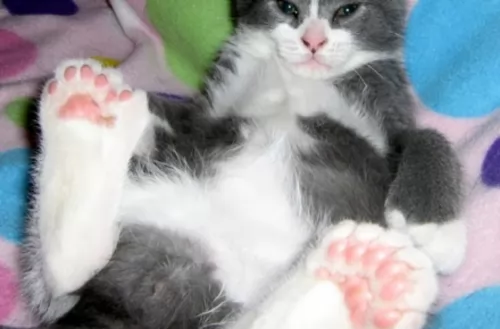 The Polydactyl cat is unusual in that the cat has been born with something odd about it. It has more than the regular number of toes on just one or more of its paws.
The Polydactyl cat is unusual in that the cat has been born with something odd about it. It has more than the regular number of toes on just one or more of its paws.
Normal cats have a sum of 18 toes, with 5 on the front and 4 on the back but with Polydactyl cats you may find as many as 9 digits on their front and back paws.
American Polydactyl cats are medium to large in size with strong, muscular bodies. The cat can weigh up to 6kg. The head is broad, the ears wide-set and pointed and the coat can be any color, pattern and length.
These cats are easy-going, relaxed, and social. They’re hardy too and they’re able to enjoy being outdoors and indoors.
They’re affectionate with their human family and are also playful and energetic. It is prepared to be friendly with dogs and children too, but it is also able to act independently and get on with things. The Polydactyl cat is distinctive but also a very popular cat breed.
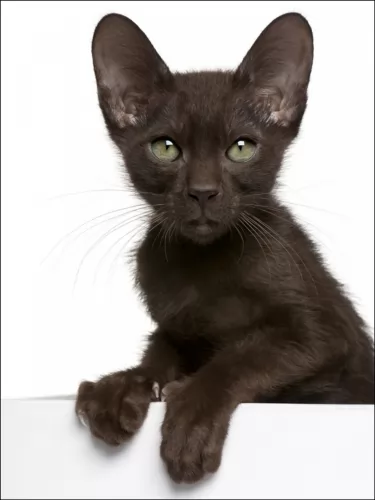 The Havana Brown is a medium-sized cat, being somewhat slender and weighing between 3 and 6kg. The body is long and muscular and the cat has a beautiful brown short to medium-length coat.
The Havana Brown is a medium-sized cat, being somewhat slender and weighing between 3 and 6kg. The body is long and muscular and the cat has a beautiful brown short to medium-length coat.
The coat color is in fact a rich reddish-brown shade. The ears are fairly large and round-shaped and the oval-shaped eyes are a beautiful green.
The Havana Brown is an intelligent, playful, curious cat who enjoys being in the company of its human family. They tend to gravitate towards one favorite family member.
They’re cats that don’t like being left alone for long periods of time. They get on well with children and he also won’t object to becoming friends with the family dog as well.
Friendly though they may be, they also enjoy spending some time on their own. Individual personalities vary but most are playful and talkative.
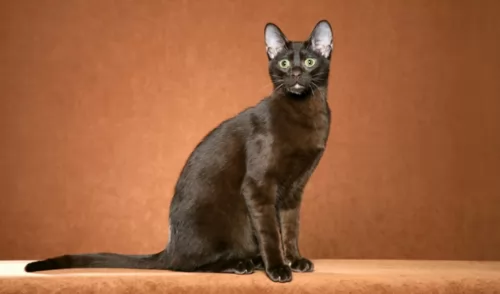 There is a good reason why the Havana Brown cat is so popular. People love the unusually rich brown coat which always has a gleam to it.
There is a good reason why the Havana Brown cat is so popular. People love the unusually rich brown coat which always has a gleam to it.
They also love that this chocolate-colored cat has a wonderful personality and can be a solid companion for humans. So long as you don’t leave him alone for a long time on his own, as that is part of his charm – wanting to be constantly involved with his human family.
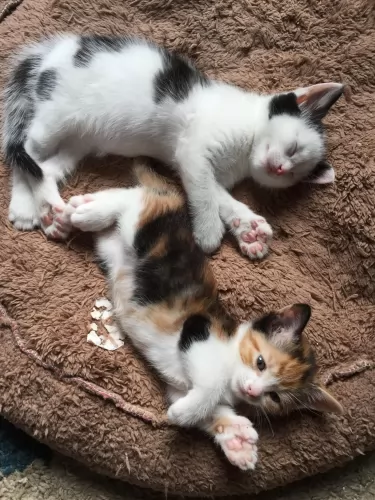 With good care, these cats can live to be between 14 and 16 years of age. You need to be diligent with keeping this cat’s nails trimmed because depending on the placement of the toes, the nails could become a nuisance, growing in the wrong direction and cutting into he cat’s flesh.
With good care, these cats can live to be between 14 and 16 years of age. You need to be diligent with keeping this cat’s nails trimmed because depending on the placement of the toes, the nails could become a nuisance, growing in the wrong direction and cutting into he cat’s flesh.
Keep the nails trimmed as necessary. To avoid possible injury to your pet, your veterinarian can safely trim your cat’s claws.
Always pay attention to your cat's behavior as well as taking note of your cat when you groom him as both are good ways to discover whether anything is amiss with your polydactyl cat.
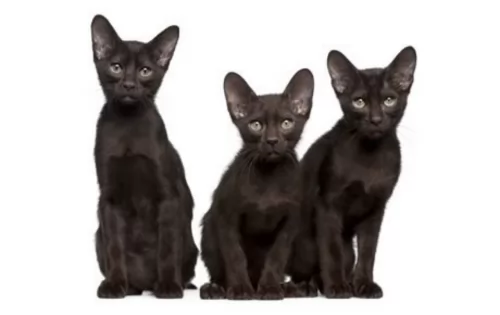 There are no known genetic diseases associated with this breed. They may have a bit of a higher occurrence of gingivitis than other cat breeds, and this thought to come from them having their Siamese ancestry.
There are no known genetic diseases associated with this breed. They may have a bit of a higher occurrence of gingivitis than other cat breeds, and this thought to come from them having their Siamese ancestry.
Beware of bladder stones with your cat which can start at any age. The stones can start off small but can grow larger, rubbing against the bladder walls and resulting in inflammation.
Bladder stones can also lead to blockage of the urethra so that your cat isn’t able to urinate. There are symptoms to indicate your pet may have bladder stones and these can be straining to urinate, painful and little urination, urinary tract infections, and blood in the urine.
This is a time when you want to get your pet to the vet just as soon as possible.
Also, be on the watch for eye infections. Conjunctivitis is one of these to look out for but there are other eye infections your cat can experience. They can come about because of an upper respiratory infection that spreads to the eyes, but they can be caused by any number of things such as bacteria, parasites, and viral infections.
You’ll notice your cat pawing at his eyes and there may even be redness, discharge, and swelling. You vet will be able to treat eye infections with ointments and eye drops.
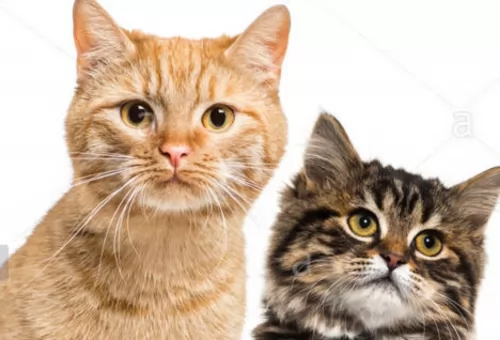 Keep an eye on your cat’s paws as their extra toes can make it that they are at a higher risk of hooking on a carpet or some other material, but this can be managed with regular nail trimming.
Keep an eye on your cat’s paws as their extra toes can make it that they are at a higher risk of hooking on a carpet or some other material, but this can be managed with regular nail trimming.
Provide your cat with all the things he needs to make his life pleasant while in your care. He’ll need feeding and drinking bowls, a nice warm, dry bed, a litter box, stimulating toys, and things such as a scratching post and cat climbing tree.
Cats are meat-eaters, and they need protein from meat for health. Some cooked chicken and beef can be a real treat for your pet. Grains and carbohydrates should only play a very small role in your pet’s diet. Too many grains can lead to malnutrition and obesity as well as problems with your cat's organs.
Always take into account your cat’s age because different life stages mean different energy levels and therefore different nutritional needs.
Take your sick cat to the vet when you see he is not his usual self. Make sure you keep up to date with all his vaccines and anti-parasite treatments.
One of the most important health decisions you’ll make for your Polydactyl cat is to have your pet spayed or neutered. The procedure is common and performed in your vet’s office every day.
It offers lifelong health benefits. It improves your pet’s behavior and keeps them close to home too. Spaying a female cat will prevent uterine infections and breast cancer, and for males, it can prevent testicular cancer.
Best of all, it helps to prevent yet more kittens into a world overrun with stray cats and rescue centers jam-packed with unwanted kittens and cats.
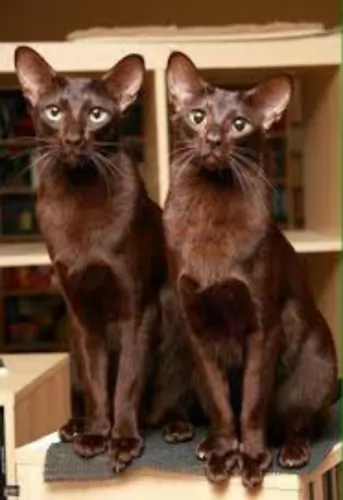 With the cat’s short coat, he experiences little shedding so very little grooming is required. A gentle brush once a week will be enough. These cats love attention and submit easily to a brush and body rub with a soft rubber brush.
With the cat’s short coat, he experiences little shedding so very little grooming is required. A gentle brush once a week will be enough. These cats love attention and submit easily to a brush and body rub with a soft rubber brush.
Check inside the mouth as periodontal disease is a problem with cats. You want to make sure that there aren’t any bad teeth as this can cause a lot of pain.
A vet can also be useful in examining your cat and pinpointing problems.
Check the inside of the ears too because they can become somewhat clogged with wax and dirt. If you don’t want to probe inside the cat’s ears with a cotton ball with warm water and apple cider vinegar, you can take your cat to the vet or to a professional cat groomer.
Keep the litter box of your cat spotlessly clean as these cats are fussy with cleanliness.